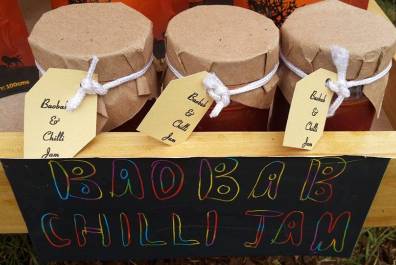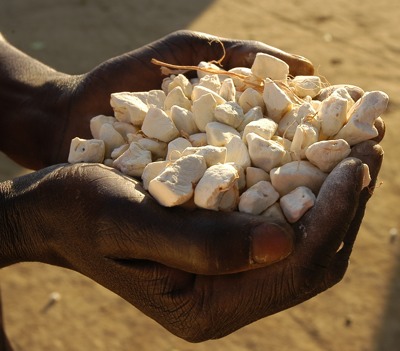 Amisha Patel is a third generation Kenyan, and like many Kenyan-Asians, her great grandfather came to Kenya during construction of Kenya Uganda Railway. She was born in Mombasa and did her schooling in Nairobi, Eldoret and Nakuru. She later joined Egerton University, Njoro, where I obtained Bachelors Degree, (First Class Hons.) in Biomedical Science and Technology. For seven years she worked as a pure science researcher at the former National Institute of Medical Research (now part of The Francis Crick Institute) in London. On returning to Kenya in 2011, she changed her career direction to Environmental Consultation for the manufacturing and commercial sector-she is still doing that. In 2013, together with her family, she set up Elekea, a company that seeks to implement sustainable business practices for our clients through environmental consultation. Later, they diversified from a service-based business to value addition of natural products. And thus, their flagship brand, O’Bao , which covers products from the Baobab tree was born. Farmbiz Africa, spoke to her about baobab (mabuyu) fruit and she told us why this wild fruit needs more attention than it has been getting. Among other things, she also introduced us to the inner workings of her value addition business and also had a word for budding entrepreneurs.
Amisha Patel is a third generation Kenyan, and like many Kenyan-Asians, her great grandfather came to Kenya during construction of Kenya Uganda Railway. She was born in Mombasa and did her schooling in Nairobi, Eldoret and Nakuru. She later joined Egerton University, Njoro, where I obtained Bachelors Degree, (First Class Hons.) in Biomedical Science and Technology. For seven years she worked as a pure science researcher at the former National Institute of Medical Research (now part of The Francis Crick Institute) in London. On returning to Kenya in 2011, she changed her career direction to Environmental Consultation for the manufacturing and commercial sector-she is still doing that. In 2013, together with her family, she set up Elekea, a company that seeks to implement sustainable business practices for our clients through environmental consultation. Later, they diversified from a service-based business to value addition of natural products. And thus, their flagship brand, O’Bao , which covers products from the Baobab tree was born. Farmbiz Africa, spoke to her about baobab (mabuyu) fruit and she told us why this wild fruit needs more attention than it has been getting. Among other things, she also introduced us to the inner workings of her value addition business and also had a word for budding entrepreneurs.
What doesn’t the world know about Baobab?
The baobab tree is an amazing representation of what nature offers us. Every part of that tree has value. The fruit can generate the superfood powder, the seed releases cosmetic oil, the husks can be used as sources of renewable fuel (we are working on developing briquetting), the leaves have medicinal value, the branches are host to beehives and the trunk stores water. In my travels as an environmental expert to the ASALs, where this tree grows in the wild, I noticed lots of felling to create land for conventional agriculture. This motivated me to identify value addition options from the tree so that the tree owners see it as financial realisation and not just a waste of space. The O'Bao brand was started as an avenue to bring to Kenyans the fruits of their own country and a way of instilling pride and protecting our natural resources. We are currently ready with the Baboab fruit powder and baobab seed oil, both of which have been through KEBS. This is a pilot project with incredible support from Kenya Forestry Research Institute.
Where do you source your raw products from and how much does it cost you per unit?
We source the whole fruit and it comes from Kibwezi for now. We will be expanding our supplier base once we establish the market response to the brand and its products. As we are a micro enterprise still under incubation and are processing quiet small volumes, thus the cost is very high per unit: we are looking at around 60/Kg of fruit (shelled) including transport to Nairobi.
How easy is it to access the raw product? Are farmers doing enough to ensure consistent supply?
 The raw material is seasonal and grows wild. It is also spread across hundreds of kilometres in the South Eastern counties of Kenya. Accessing this without a structured approach is a challenge that we are continually working on. Stocking is important. Being a start-up this is difficult with constraints of finance and space. In the high season the supply is consistent. However, getting the right quality remains to be worked on.
The raw material is seasonal and grows wild. It is also spread across hundreds of kilometres in the South Eastern counties of Kenya. Accessing this without a structured approach is a challenge that we are continually working on. Stocking is important. Being a start-up this is difficult with constraints of finance and space. In the high season the supply is consistent. However, getting the right quality remains to be worked on.
Kindly explain what goes on in the processing of the Baobab fruit
The fruit is sorted and graded both at harvest and once it is received. Each fruit is individually inspected for pest, disease or rot. The good fruit is de-fibred and then passed through a dehuller. We then sieve the powder, and store in dark polythene bags to prevent light and moisture degradation. This is very important as key nutritional ingredient (Vitamin C) is affected by these parameters. This also prevents the growth of microorganisms. Our O’Bao packing is also designed to incorporate these mechanisms (foiled to retain freshness and prevent light access). The seeds from dehulling are washed and sun dried. They are then passed through a screw oil press to expel the oil. The oil is sieved through organic muslin and allowed to settle for 1 month in a sealed opaque storage container. Packing is also done in opaque bottles with pump dispensers to prevent access to light and air which would aid degradation. As the oil is pure, we sometimes expect to see light sediment at the base of the bottle and should not be a concern to customers. We try to go as organic as possible.
How much does a unit of O’Bao cost off the supermarket shelf?
O’Bao Baobab Powder retails at between KSh500-560 per 100g; O’Bao Baobab Seed Oil is expected to retail at between KSh450-595 per 50ml bottle. The world market value is double for both.
How do you market the O’Bao product?
We have stocked our brand at Healthy U stores mainly in Nairobi ( Gigiri, Yaya, Galleria, Junction, Sarit Centre and Westgate) and Nakuru (Westside mall). It is also stocked at Rednest Salon in Park Suites, Parklands Road and Auras Beauty Salon at New Muthaiga Mall. We are in talks with other retailers so that we may reach more Kenyans.
What advice would you give to Kenyan farmers/youth, who want to make money from their ideas?
I believe the approach to doing business just for money is unsustainable and short sighted. Have milestones instead of goals. The idea is to never reach your goal, allowing for diversification to ensure success. Do your homework and be ready to sacrifice your time and money. Many businesses do not survive because the vision is lost once money starts flowing in. Be ethical in your business practices but also realistic. There is nothing more damaging to your brand than lack of integrity. Do your best to meet customer demands but have a damage control plan when you are unsuccessful in doing so. Have realistic expectations from your business. Do not expect to make millions the first, second or even third year. You are just starting to get some returns on investment. Survive the 5 years mark and you can safely say you are a business person. Know when to get out. Perseverance and determination is well and good, but it’s important to have an exit plan should things not work out.
















Comments powered by CComment